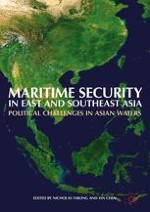2017 | OriginalPaper | Chapter
9. Sea Power and Maritime Disputes: China’s Internal Discourses
Author : Xin Chen
Published in: Maritime Security in East and Southeast Asia
Publisher: Springer Singapore
Activate our intelligent search to find suitable subject content or patents.
Select sections of text to find matching patents with Artificial Intelligence. powered by
Select sections of text to find additional relevant content using AI-assisted search. powered by
